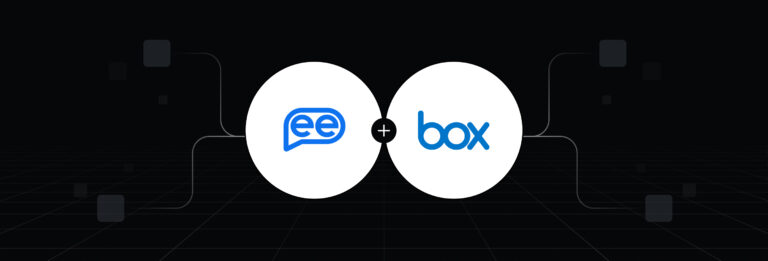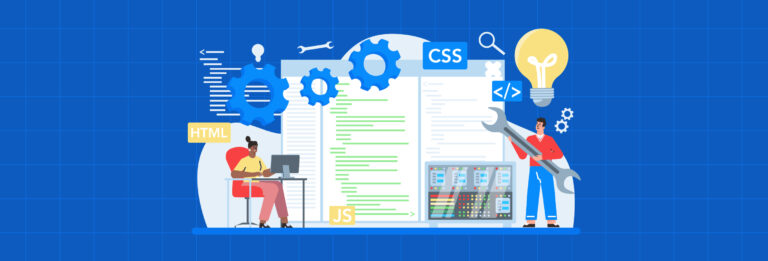The evolving work landscape and transforming HR technology trends are changing the role played by the Human Resource (HR) departments. HR departments across industries are transforming gradually to become more agile and hyper-focused on employee experience, rather than steeped in administrative activities. Due to this changing role of the HR team and current trends in HR, there has been an increased demand for use of emerging HR technologies, which make team members capable of adapting to the changing employee behaviors.
In this blog, we’ve listed the top HR tech trends that we expect to dominate in the coming years. We also analyze the trends based on how artificial intelligence (AI) technology is driving their adoption— from sourcing and screening candidates to answering incoming queries and onboarding them.
Talent discovery

Talent discovery is a crucial function of human resource management and it has witnessed numerous advancements in the past few years, thanks to the evolution of digital strategy for HR operations and AI tools.
Finding the right candidates at the right time and cost is the main goal of every recruiter. And since there are a plethora of sourcing channels available online, recruiting teams must discover candidates at the right place. Plus, they can’t be expected to know everything about the nuances of job posting language, especially for highly technical roles.
This is where AI-enabled tools in a well-designed HR digital strategy come into play. From posting job adverts to identifying potential candidates, AI-based engines can be highly beneficial for the recruiters for fast and accurate talent discovery.
It can help reduce biased language in the job descriptions by improving their content. Recent trends in HR digital transformation have also shown that the use of AI in the early stages of recruitment can positively impact the response rates and also help you qualify the right candidates for the position.
Further, AI-powered HR software can also enable you to source top-tier candidates based on gender, ethnicity, age, etc. by using predictive analytics and Natural Language Processing (NLP).
Talent engagement before hiring
The talent acquisition market is now in a phase of high competition. Therefore, engaging candidates before hiring them is a critical process in the recruiting process. Not only does it enhance their interest level but also reduces applicant drop-offs. Here, using AI-enabled virtual assistants, as part of the HR digital transformation strategy can be of great value.
Recruiters don’t always have the time to engage with candidates regularly and answering repetitive queries can be tiresome. Automated chatbots and other AI-enabled instant messaging tools can solve this issue by communicating with candidates 24/7 and resolving their queries with relevant information.
Further, AI tools can answer questions in real-time and minimize the need for human intervention in the hiring process. Not only that, these chatbots can help you maintain relationships with candidates who are not yet available for the role but can become an asset when a relevant position opens.
Talent assessment

Screening applicants is one of the most demanding tasks in the hiring process. However, the days of manually going through tons of resumes and cover letters are soon coming to an end — all thanks to Artificial Intelligence (AI).
AI-powered tools as part of an HR digital strategy can be used to assess thousands of resumes and identify candidates best suited for a position. These look at different factors, such as skills, education, and experience levels. The data can then be compared against specific requirements based on the open positions. This saves the hiring manager hours of their job and also helps ensure the best candidates are hired for the role.
In a nutshell, AI-enabled tools provide a structured, standard, and fair way to screen more candidates in less time. However, they don’t replace recruiters but help them make the overall process quick, seamless, and accurate. Recent HR technology trends show that they democratize the recruiting process by eliminating bias.
Interview process
The interview process is a crucial function of the human resource department and should be a key study among the new HR trends. Organizations undergoing a HR digital transformation strategy are also doing tons of competitive research to ensure they are ahead of others in the interview process. This is because candidates can be future employees, customers, stakeholders, or even ambassadors. It is, therefore, essential to provide them with a great experience.
AI-powered tools can be used to great effect in this scenario. For example, AI-powered interview tools can catch and record points such as word choices, facial expressions, and gestures that human recruiters might miss. Further, AI tools can analyze large amounts of data and find patterns that can get overlooked due to human errors.
In a nutshell, online interview software is a great way to stay ahead of the current HR technology trends. They boost the team’s productivity, tackle the hassle of scheduling interviews, and create a great candidate experience. The best part? You can review the digitally recorded interview at any time and set up the next interview rounds automatically.
Offer finalization process
Once you hire a suitable candidate for the position, it’s time for providing the final job offer to them. Creating and sending job offer letters to candidates is a critical part of the recruitment process as it contains important information about the job role, compensation and benefits, and other employment terms and conditions.
In short, it sets the right expectations from the beginning and builds a positive employer-employee relationship. Not to mention, it is the final official document that decides whether or not the applicant will join and work for your company.
So, it’s critical to create a perfect offer letter that clearly outlines everything being offered to your candidates and boosts their chances of accepting the job offer. By using AI-powered tools, not only can you create an offer letter but also share it and collaborate with other departments to make sure everyone is on the same page.
Apart from letters, you can also create employment contracts, employee handbooks, and more using AI. Further, AI tools can also help you track engagement on shared offer letters — you can see who viewed the letters, how frequently they were viewed, and so on.
Preboarding

Recent HR technology trends show that because your new hire has accepted the job offer doesn’t mean your hiring process is complete. This is where creating an impressive pre-boarding process can go a long way in ensuring your candidates that they made the right choice in joining your organization. This includes scheduling an office tour, having a get-together with the team, sending essential documents, and more.
AI-powered HR tools can help build a well-structured preboarding phase that can strengthen employees’ connection to the company’s mission and values. It also makes them feel like a valued team member. Moreover, it simplifies document uploading and addresses new employees’ queries, making the experience seamless. Employers can also easily send the candidates details about the first week’s schedule and enable them to contact the company via a 24X7 available virtual buddy.
Onboarding
One of the most significant HR digital transformation trends can be seen during the onboarding period.
It comes right after pre-boarding and starts on the first day of employment and is a crucial phase that forms a positive impression among new hires about the company. It also builds a foundation for a strong, long-lasting employee-employer relationship. Not only does this enable organizations to ensure 24X7 onboarding but also answers FAQs via chatbots and guides new hires through the various aspects of onboarding.
Engagement
Employee engagement is a key indicator of an organization’s success. As companies are adopting the remote work culture, it has become quite challenging for them to keep the employees engaged throughout their lifecycle. The old methodologies adopted to boost employee engagement aren’t showing the desired results anymore.
HR managers have found a solution to this in the recent HR tech trends, that is AI-driven technology and HR digital transformation strategy. From measuring and managing employee sentiments and deriving insights to automating monotonous tasks and personalizing learning and development experiences. These changes enhance employee experience, provide 24X7 support, and ultimately increase employee engagement.
Query resolution

Another major highlight of recent HR technology trends is the use of AI technology in employee query resolution. As companies grow larger, it becomes challenging for HR professionals to handle employee queries in real-time and also provide a personalized touch to them. Nowadays, employees expect a customer-like experience. They prefer a convenient, personalized, and speedy response. And to achieve that, AI-driven tools can be the best bet.
For example, if employees have any queries, they either send an email to HR or talk to them personally. Or they even use a ticketing system with a response time ranging between 4 and 48 hours. But with an AI query resolution system, your HR team can address their requests instantly and 24X7.
Further, these systems also come with chatbots that can serve as an employee support tool and answer employee questions by providing FAQs and other relevant resources. This helps the HR teams save tons of time that they can invest in complex employee engagement activities.
Training and career development
Training and career development is a crucial factor that determines whether the employee will join your organization. According to recent trends in HR digital transformation, a robust training program helps employees stay motivated and efficient for quarters in the end. However, just like other HR functions, employee training needs to be done the right way — especially when most workers have started working remotely.
Using traditional training methods disrupts your employees’ learning pathways, widening your workplace skills gap and making the overall training ineffective. To level up your personnel’s growth, AI-driven tools can help.
Artificial Intelligence can help personalize the training sessions of new and old employees based on their skills, experience, and knowledge. Further, it considers the learning styles of different employees so they can learn at their own pace. With AI, you can also build a learning platform where all resources, programs, schedules, and data are stored, tracked, and delivered.
Summing up
With the digitization of the HR department by the recent hr tech trends, various trends are emerging in the industry to keep up with the changing workplace environment and employee expectations. Hence, an organization must become ready and plan for handling these trends and staying competitive in the industry.
Organizations need to invest in various AI-augmented tools to make HR activities faster, easier, and fairer and stay ahead of the curve. These tools also help reduce costs and the time required by the employee on completing a task. Over time, you will see a substantial reduction in the time-to-hire and a noticeable increase in the candidate experience.






